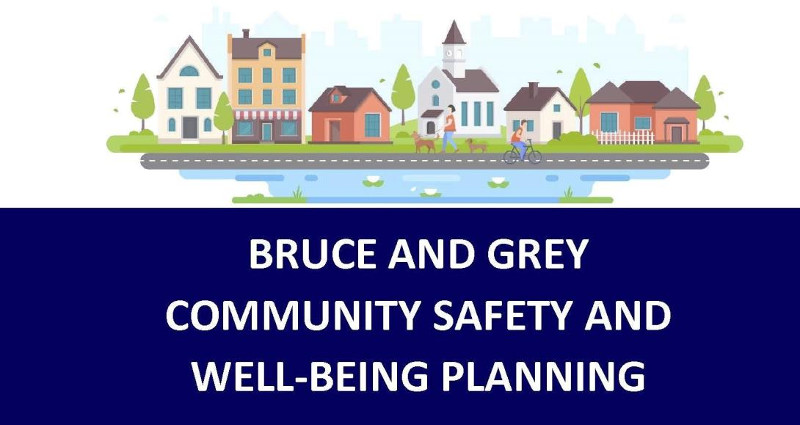The Community Safety and Well-Being Planning (CSWBP) Mental Health Action Table has been diligently working to address and meet the mental health needs of community members in Grey Bruce. Leading the action table are key collaborative partners Keystone Child, Youth and Family Services, Brightshores Health System, and the Canadian Mental Health Association (CMHA) Grey Bruce.
Brightshores Health System recently opened a new facility dedicated to supporting individuals with addictions and mental health needs. The centre will have 21 withdrawal management beds, 14 relapse prevention and treatment beds, and 10 supportive studios for longer term stays – 45 beds in all.
This project is the first of its kind in this region. Based on harm reduction and recovery principles, the Wellness & Recovery Centre will provide a safe environment for individuals in need of support and management of their substance use and mental health concerns. The model of care is based on key wellness outcomes identified in the First Nations Mental Wellness Continuum: purpose, meaning, belonging, and hope.
The Canadian Mental Health Association (CMHA) Grey Bruce recently received funding for 24/7 comprehensive mental health and addiction supportive housing at a building owned and operated by Grey County at 386 14th Street in Owen Sound. This program will provide high-acuity transitional housing support for individuals with mental illness and/or substance use issues who are homeless or at risk of homelessness. This high-intensity supportive housing model will help individuals transition successfully into stable housing while reducing the reliance on emergency services.
Keystone Child, Youth and Family Services has recently received funding to support an expansion of their live-in treatment program for youth 12-17 years of age. In addition, the organization has recently assumed ownership of a new building that will allow the program to expand from 6 beds to 13. There are 6 beds dedicated to clients who require step-up and step-down services in partnership with Brightshores. With the new space and funding, the treatment model will now expand to include longer term (up to one year) treatment options in addition to intensive in-home supports up to a year in length at the pre-and-post admission stages to support better integration back to the family and community setting.
The Mental Health Action Table partnership is committed to addressing key outcomes identified at a recent Ontario Health Team Mental Health and Addictions Visioning Day held in Owen Sound. These efforts include improving access to programs and services, promoting recovery, and incorporating lived experience through more funded peer positions. Additionally, they include expanding treatment options, championing equitable access by addressing the root causes of social determinants of health (non-medical factors that influence health outcomes), and enhancing early identification and intervention for children’s mental health and addictions.
The Action Table partnership is developing a Grey Bruce Mental Health and Addictions Network Scorecard with targets and deliverables on key indicators. Progress will be tracked quarterly, with partners reviewing system-level data to achieve goals such as reducing emergency department visits, length of hospital stays, and wait times for outpatient services.
Community Safety and Well-Being Planning helps organizations improve the things that keep us healthy, happy, and safe. Together, research is used to create solutions focused on education, health care, food, housing, income, crime, and belonging. It is important that a welcoming community is created where problems are solved before they happen and where different professionals and community members come together to help people now and in the future.
The ongoing work of CSWBP is supported by an advisory committee representing over 74 partners from across Bruce and Grey who are working together to address crime prevention by investing in social development, prevention, and risk interventions. This upstream preventative model focuses on creating protective factors that make individuals less vulnerable to crime and victimization.
For more information, visit: https://cswbp-brucegrey.ca/












